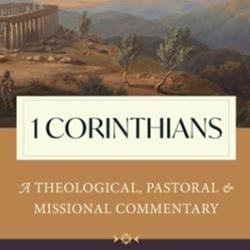Lectionary Reflections
Proverbs 8:1-4, 22-31
May 26, 2013
This passage from Proverbs is rich with suggestion for any number of fascinating subjects. It is surely an intermediary reflection concerning a figure, Lady Wisdom, who becomes in the prologue to the Gospel of John the Logos of God, "without whom not one thing came into being" (Jn. 1:3). In other words, John takes the figure of Lady Wisdom and turns her into the Logos, pre-existent with God the creator, who for John is none other than Jesus the Christ. And then there is the intriguing fact that this figure is overtly and decidedly female. She is Lady Wisdom, and she is "the very first of God's works," and "God's delight day after day" (Pr. 8:22, 30).
Thus, we could speculate philosophically and theologically about the being of Wisdom, who she is and what she does, and exactly how she relates to the person of God. Given the later history of intense discussions of the three-personhood of God, the Holy Trinity, the loss of the female reality of Lady Wisdom could be seen as a momentous one for the history of male/female relationships in Christianity, leading to all manner of misogynous aberrations like an all-male priesthood in Orthodox and Roman Catholic Christian polities and the very late acceptance of women as spiritual leaders in many Protestant communions, if they are accepted at all. And further how more precisely does the female person of Lady Wisdom (chokmah in Hebrew) relate to the female figure of Greek Wisdom (Sophia in Greek) who plays with God as companion and who, as in Proverbs 8, "was created before all other things" in Sirach 1:4? (Sirach is a 2nd-century B.C.E. Jewish book of Wisdom that we have only in a Greek translation of a supposed Hebrew original.)
Either rumination on the vagaries of the Trinity (it is after all Trinity Sunday!) or the sad, and infuriating, loss of the female origins of the Logos of God would be worthy of further comment. Someday in the future I may do just that—perhaps when this text rises again in the lectionary. But for this day something else has struck my eye. I wish to focus attention on 8:30-31, for there I read some ideas that have formed the very core of my religious and scholarly life.
First, let me translate these verses:
I was God's intimate;
I was God's delight day after day,
playing before God all the time,
playing in the world, in God's earth;
my delight was with humankind.
The playful nature of this language cannot be over-emphasized. Lady Wisdom, who calls out to any who will listen (Pr. 8:1-4), who offers many crucial skills to those who seek her out—shrewdness (8:5), righteous speech (8:6), a truthful tongue (8:7), counsel and prudence (8:14), even the righteousness of kings (8:15)—is also just plain fun! She gambols before God, her maker, and she shares her special delight with all human beings. Wisdom is not only the right way to go; she also offers the most pleasurable way to go.
I spent well over half my life, thirty-six years, trying to teach students about things biblical and homiletical. I am still at it, albeit in a reduced fashion, given my retirement from the full-time classroom. As I look back on those times in all those classrooms, some of great reward and some at the level of fingernail extraction, I think what I was doing primarily was offering up the delight of Wisdom. I was trying to convince my students that learning was fun, that one could find a deep pleasure in grappling with readings on the surface too difficult, wrestling with ideas too complex to grasp, struggling with concepts that threatened to drown us all in a turbulent sea of constructs beyond us. I often called myself a "cheerleader for the Bible," since in my experience the study of the Bible had been reduced to long-faced piety, sprinkled with angry denunciations of all those who imagined things in a different way. The sheer joy of the thing was too seldom witnessed, overwhelmed by the dark "seriousness" of it all.
I tried again and again to communicate the outright bliss of getting a thing clear, of grasping an idea in a fuller way, of seeing a text in a fresh light. Here was the exhilaration of Lady Wisdom, who calls us as objects of her delight. Just as she ever delights God as an intimate part of God's ongoing creation, so she shares her delight with us. Just as any scholar takes vast pleasure in the labor of research, just as a biologist achieves deep joy when discovering the intricacies of nature, so Lady Wisdom spreads her delight on all those who heed her summons to genuine wisdom.
I had a student once, a theological student, who came to me on the day of his graduation from our seminary, and announced happily, "Dr. Holbert, I will never read another theological book as long as live!" I fear he has kept that promise and continues to stop his ears to the call of Lady Wisdom. I failed that student (perhaps I should have "failed" him!), and my faculty colleagues did as well. We were not able to speak with him in such a way that he could hear the call of Lady Wisdom and could thereby discover the sheer pleasure of learning, of employing his mind in the work of ministry.





